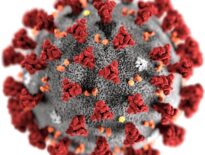
A pedestrian enters the MBTA's Downtown Crossing station in Boston. State House News Service photo | File
A majority of Massachusetts residents believe that if the MBTA sharply cuts back on services to balance its budget next year those commuting options will not return after the state’s economy fully reopens, according to a new MassINC poll.
The MBTA has proposed $128 million worth of service cuts as part of a plan to deal with a $579 million shortfall in a budget decimated by the decline in ridership during the pandemic. The Fiscal and Management Control Board plans to vote on the package Dec. 7, and has faced blowback from riders, legislators and transit advocates.
The survey of 1,340 Massachusetts residents found that 64 percent somewhat or strongly oppose the cuts in service proposed by the MBTA, including less frequent subway and commuter trains, the elimination of 25 bus routes and the cancellation of ferry service.
If the MBTA were to move ahead with those cuts, 54 percent said they didn’t think the eliminated services would be restored after the COVID-19 pandemic abates and workplaces fully reopen.
“With the news about vaccines, there’s some light at the end of a long dark tunnel,” said Steve Koczela, president of The MassINC Polling Group, which conducted the poll. “How and whether people commute to work will depend on the options available to them, including the frequency and reliability of service on the MBTA.”
While the MBTA has painted a dire picture of ridership during the pandemic that makes it economically untenable to continue providing services that residents are not using, 66 percent of residents said they would support giving the MBTA additional money from the state budget to eliminate the need for service cuts.
The poll, however, did not asked respondents where that money should come from, such as whether residents would prefer to see the money diverted from another program or if they would support raising additional revenues through higher fares or other tax increases.
The elimination of commuter rail service on the weekend drew the most opposition, with 48 percent saying they strongly oppose the move, while the proposal to stop subway and bus service at midnight instead of 1 a.m. had the most support with 50 percent saying they somewhat or strongly support the idea.
Eighty-two percent of those polled said they had heard at least something about the MBTA’s proposed cuts.
With Pfizer’s vaccine expected to begin arriving in Massachusetts within a couple weeks for at-risk populations and vaccines expected to be available to the general public by the spring, 34 percent said they would like to work from home every day even after the economy fully reopens, and another 28 percent said they’ like to work from home at least a few days a week.
Of those polled by MassINC, the percentage of workers who said they would use public transit every day to get to work dropped from 12 percent pre-pandemic to 9 percent after a vaccine becomes widely available.
The percent of workers who expressed a desire to keep up their work-from-home routines in the statewide MassINC poll was higher than that found by A Better City in a survey of workers in the metro Boston area released last week.
The survey done by A Better City found that only 20 percent wanted to continue to telework after their workplaces fully reopened. That same survey reported that 38 percent of workers would drive alone after the pandemic, compared to 23 percent pre-COVID.
Free or reduced-price MBTA passes were listed as the having the most potential to change a solo driver’s commuting habits. The share of metro Boston workers using the commuter rail would drop from 20.9 percent to 12.3 percent post-pandemic, according to A Better City, while the popularity of the subway as a daily commuting option wold fall from 29.2 percent to 16.4 percent.






